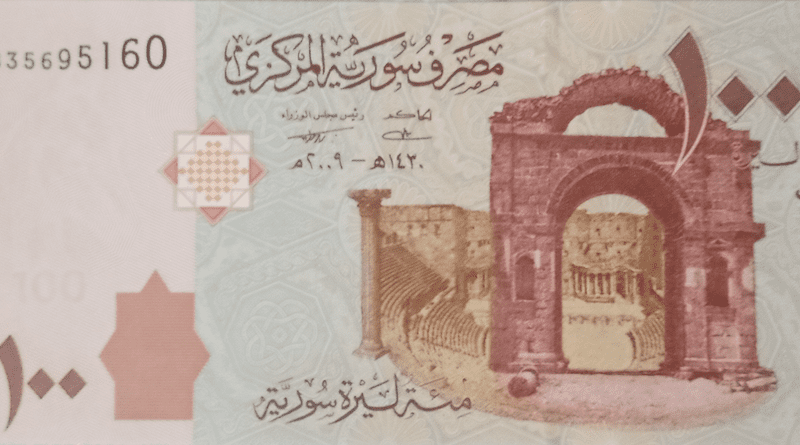Syrians Pay The Price For Iran’s Malign Neglect – OpEd
By Arab News
By Ghassan Ibrahim*
The Syrian lira is facing turmoil in the foreign exchange market, with the Syrian Central Bank unable to support the currency because of a significant deterioration in its reserves. There are undoubtedly many economic and political reasons for the decline in the bank’s role. Specifically, however, the end of financial support from Iran has put the bank in a state of paralysis.
The fall in the value of the lira is reflected in Syrian people’s livelihoods and daily financial interactions beingdependent on the exchange rate against the US dollar. Most retailers and wholesalers have given up supplying consumers on credit or installments, and prefer to postpone the calculation of the value of goods until payment is settled at the dollar exchange rate.
As a result of the depreciation of the lira, the government raised fuel prices, causing Syrians to fear that their already dire living situation would worsen from the lack of basic necessities such as food, electricity and fuel.These fears are reinforced by the continued decline in family incomes caused by the record low exchange rate.
Every time the regime raises fuel prices, there is another hike in food prices under the pretext of high transport costs. Added to this are increased fares on public transport, which Syrians were already complaining was expensive and limited in availability.
The aggravation of the economic crisis because of Iran’s withdrawal of support shows the extent of Iran’s dominance over Syria and its economy. While the Iranian economy is suffering, in Syria it is spiraling downward out of control.
Iran suffers from internal crises that have confused its tactics in countries under its influence, especially Syria, but the main goal remains putting pressure on Bashar Assad — who is following Russia’s will, partly away from Iran. This obedience to Moscow more than to Tehran is beyond Assad’s control, because Russia is the most influential player in the Syrian crisis. This is why Tehran is trying to persuade Assad to ask Moscow for financial support.
It is evident that Assad has no room for maneuver between Iran and Russia, and thus loses the possibility of obtaining financial support from both sides. At the same time, both Iran and Russia are trying to take advantage of the remaining opportunities in Syria. Instead of supporting its ally Assad, Iran is seizing opportunities to capitalize on what remains of the Syrian economy.
In acquiring Syria’s third-largest mobile phone operator, Wafa Telecom, Iran appears to be trying to replicate the experience of Hezbollah — which controlled the telecommunications sector in Lebanon under a coercive security regime in which Tehran played a key role at the time. The acquisition has a broader dimension in that Iran is able to access the data of more than 16 million users in Syria, which allows Tehran to directly monitor communications and cover up the activities of its military forces and militias in Syria.
Owning Wafa will allow Tehran to expand its social influence. Investments in the telecommunications sector will also provide greater access to the Syrian economy, for which other countries, such as Russia and Turkiye, compete.
Iran’s influence in Syria is not limited to the economic and social aspect. Tehran continues to invent ways to maintain its military influence in Syria. One example is the use of the private Iranian airline, Mahan Air, to transport weapons and equipment to Hezbollah and the Syrian regime on civilian aircraft. According to the Israeli research center Alma, Iran’s new trick is that the Revolutionary Guards buy airline tickets from Mahan for civilian passengers and cargo, but instead transport equipment to produce weapons and missiles.
Iran seems to have lost control of Syria, as it is no longer interested in supporting the Assad regime financially even if Syria goes bankrupt. Instead, it focuses on exploiting the remaining opportunities in Syria, whether economic or military.
Such a strategy, however, is misguided; Syria is increasingly becoming a burden on Iran, which no longer seems to be able to maintain it as a stable state.
• Ghassan Ibrahim is a British-Syrian journalist and researcher on issues regarding the Middle East, most notably Turkiye, Syria and Iran. He can be reached at www.ghassanibrahim.com.

